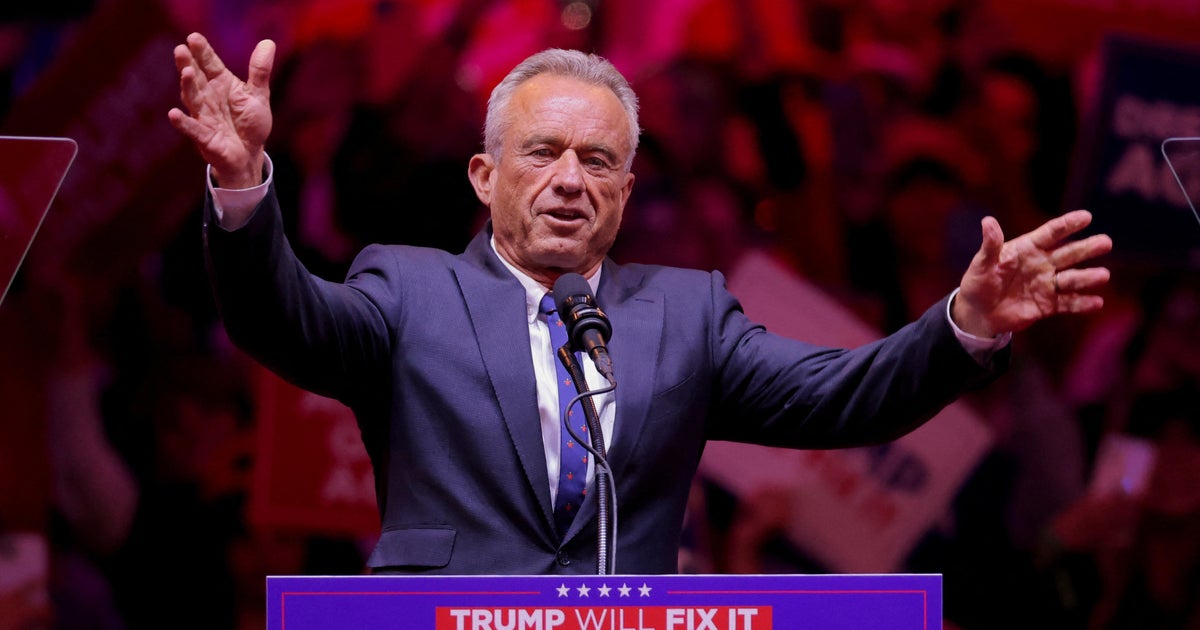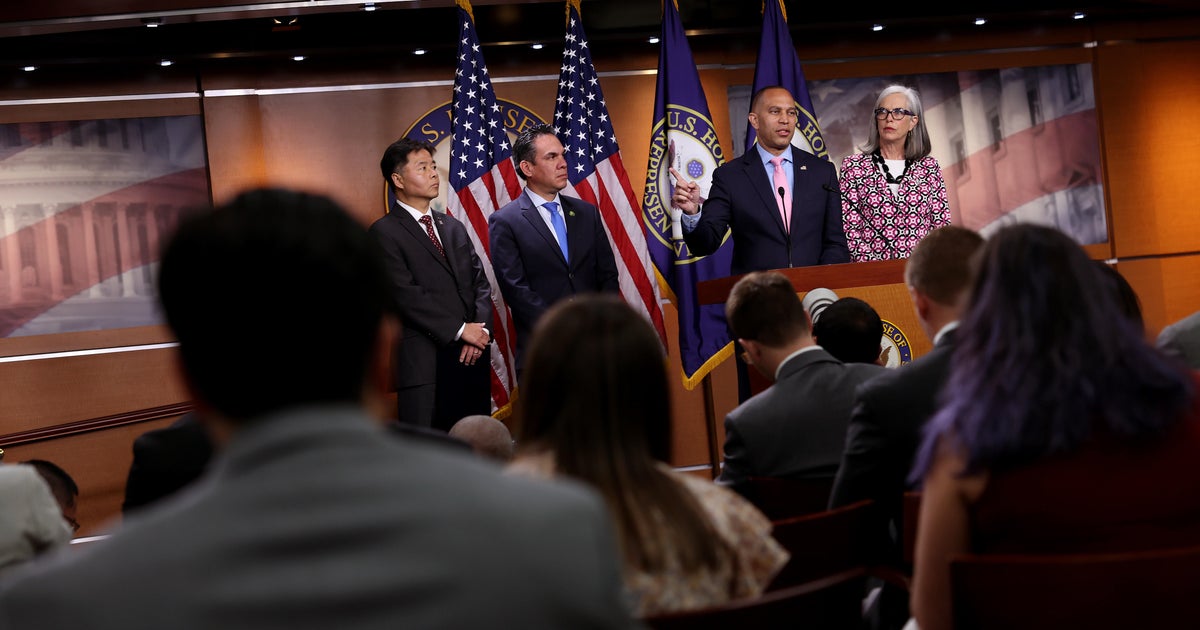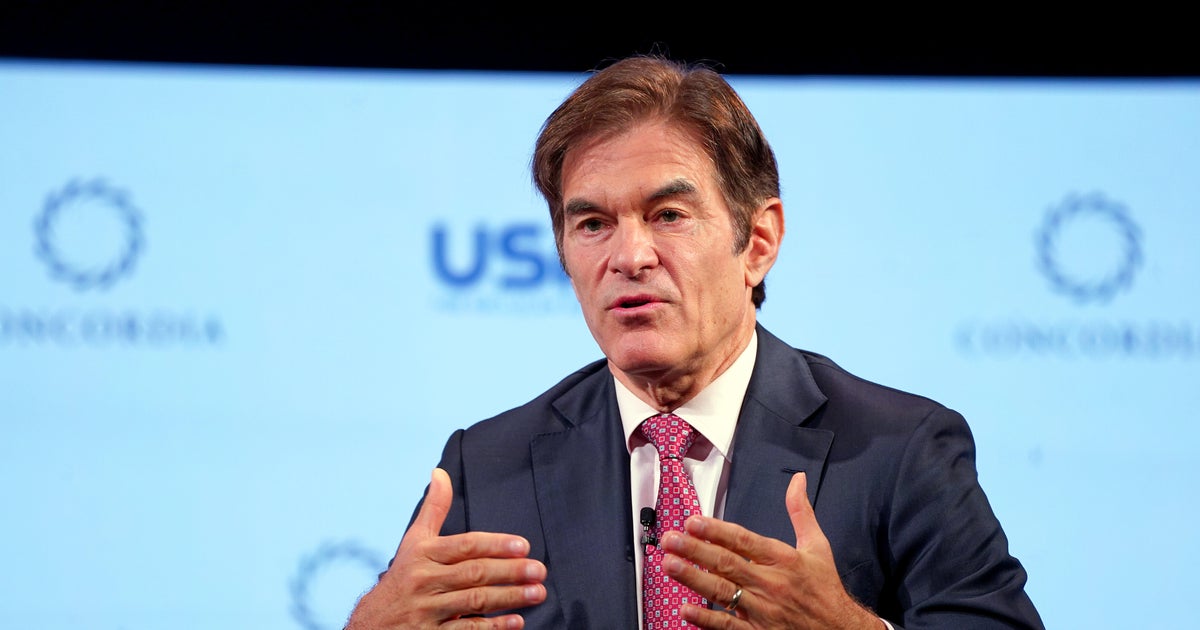House Democrats unveil plan for public impeachment hearings
Washington — House Democrats on Tuesday unveiled the text of a resolution laying the groundwork for the next phase of their impeachment inquiry, including establishing the process for public hearings and the eventual participation of the president and his counsel.
The resolution directs five committees — Intelligence, Foreign Affairs, Oversight, Financial Services and Ways and Means — to "continue their ongoing investigations as part of the existing House of Representatives inquiry into whether sufficient grounds exist" to impeach President Trump.
"The evidence we have already collected paints the picture of a President who abused his power by using multiple levers of government to press a foreign country to interfere in the 2020 election," four of the chairs said in a statement. "Following in the footsteps of previous impeachment inquiries, the next phase will move from closed depositions to open hearings where the American people will learn firsthand about the President's misconduct."
Full text of the resolution
Read the full text of the House resolution on impeachment, embedded below. You can also download a PDF of the resolution.
The measure directs the Intelligence Committee, led by Chairman Adam Schiff, to hold open hearings in the investigation, with equal time for questioning allotted to majority and minority members of the committee or staff. Both the chairman and the ranking member, or designated staff members, would have 45 minutes to question witnesses in 5-minute increments before questioning by other members.
The resolution also gives the top Republican on the committee, ranking member Devin Nunes, the ability to submit requests for witnesses with "a detailed written justification of the relevance of the testimony" by each witness. Schiff would be able to decline Nunes' request, with Nunes able to refer the request to the full committee for a vote. The resolution also gives Nunes the authority to issue subpoenas to compel testimony from his witnesses, and Schiff the authority to release transcripts of closed-door depositions.
The Intelligence Committee would then draft a report of its findings in consultation with the chairs of Foreign Affairs and Oversight, and transmit the report to the Judiciary Committee, as well as relevant investigatory material the committee collected.
Once the Intelligence Committee has transmitted its findings, the Judiciary Committee would take the lead on proceedings pursuant to procedures set by the Rules Committee, "including such procedures as to allow for the participation of the President and his counsel." The top Republican would also have the ability to request witnesses, following the same process as the Intelligence Committee.
The Judiciary Committee would then "report to the House of Representatives such resolutions, articles of impeachment, or other recommendations as it deems proper."
The Rules Committee is scheduled to meet to "mark up" the resolution with amendments on Wednesday afternoon, and Democratic leaders hope to vote on the measure on Thursday.
The White House reacted to the resolution later Tuesday, saying it shows the inquiry "has been an illegitimate sham from the start."
"The White House is barred from participating at all, until after Chairman Schiff conducts two rounds of one-sided hearings to generate a biased report for the Judiciary Committee. Even then, the White House's rights remain undefined, unclear, and uncertain – because those rules still haven't been written," press secretary Stephanie Grisham said in a statement.
"This resolution does nothing to change the fundamental fact that House Democrats refuse to provide basic due process rights to the Administration," she added.



